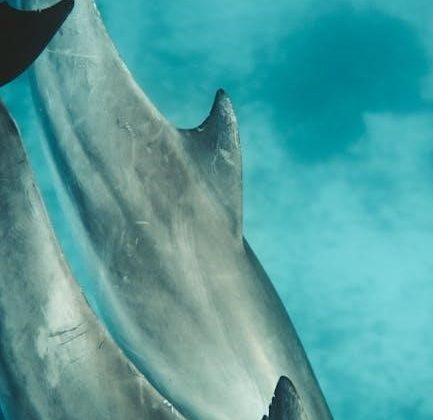The International Commission for the Conservation of Atlantic Tunas (ICCAT) plays a vital role in marine conservation by promoting sustainable tuna management and protecting marine ecosystems globally.
1.1 Overview of the International Commission for the Conservation of Atlantic Tunas (ICCAT)
The International Commission for the Conservation of Atlantic Tunas (ICCAT) is an intergovernmental organization dedicated to the conservation and management of tuna and tuna-like species in the Atlantic Ocean. Established in 1966‚ ICCAT works to ensure the sustainability of these resources through science-based policies and international cooperation. The commission oversees the entire Atlantic Ocean‚ from the equator to the poles‚ and involves member countries in decision-making processes. ICCAT’s framework includes research‚ monitoring‚ and enforcement measures to protect marine biodiversity. Its efforts aim to balance the needs of fisheries with the preservation of marine ecosystems‚ ensuring long-term sustainability for both the environment and the fishing industry.
1.2 Objectives and Scope of ICCAT Resolutions
ICCAT resolutions aim to ensure the long-term conservation and sustainable use of Atlantic tuna and tuna-like species. Their scope includes implementing science-based management measures‚ addressing ecosystem impacts‚ and promoting international cooperation. Key objectives involve protecting marine biodiversity‚ mitigating bycatch‚ and combating illegal fishing practices. Resolutions also emphasize the importance of data collection‚ vessel monitoring‚ and enforcement mechanisms to ensure compliance. By addressing threats like climate change and IUU fishing‚ ICCAT resolutions strive to balance ecological preservation with the socio-economic needs of fishing industries. This comprehensive approach ensures that conservation efforts are both effective and adaptive to emerging challenges in marine ecosystems.
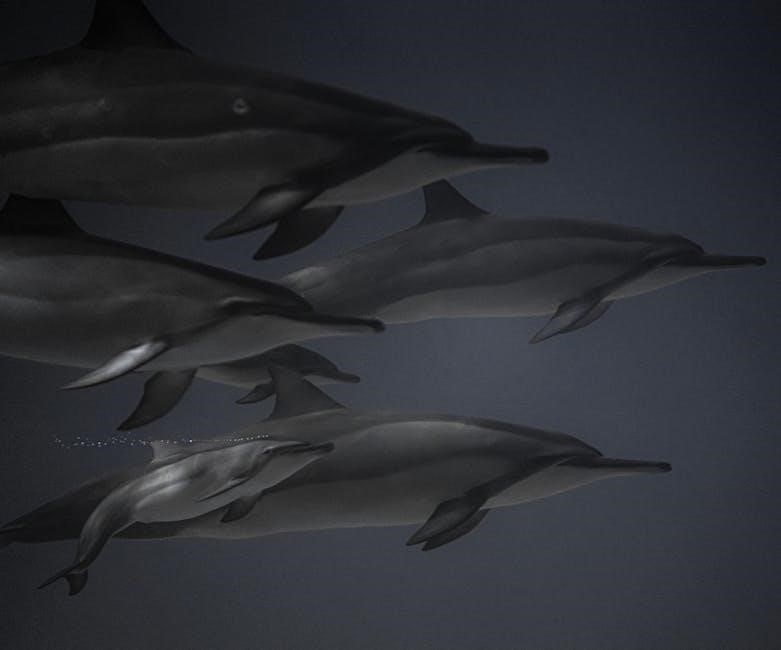
Key Provisions of the ICCAT Resolution on Dolphin Conservation
The resolution introduces measures to protect dolphins from bycatch‚ ensure habitat preservation‚ and monitor interactions with tuna fisheries‚ promoting sustainable coexistence in marine ecosystems.
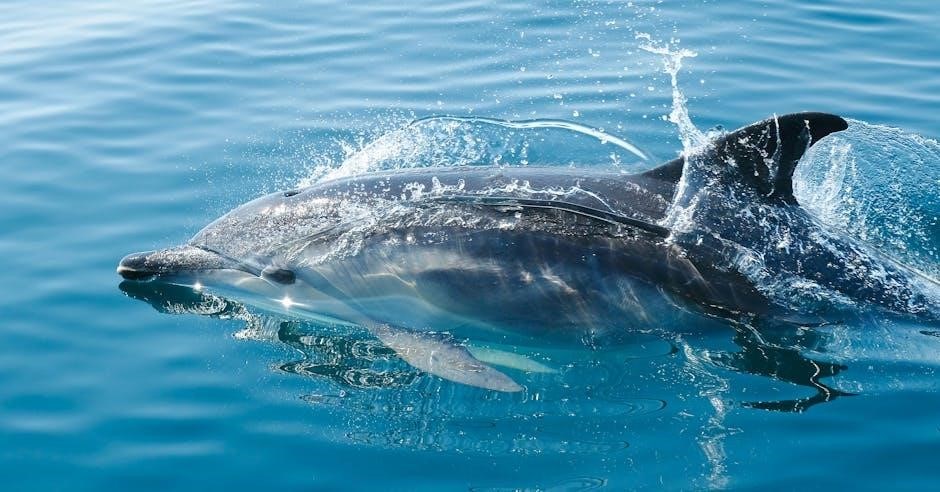
2.1 Vessel Sightings and Reporting Requirements
ICCAT mandates vessel sightings and reporting to monitor dolphin interactions with tuna fisheries. Vessels must document all dolphin encounters‚ including location‚ species‚ and bycatch incidents. This data aids in assessing the ecological impact and developing mitigation strategies. Mandatory reporting ensures transparency and accountability‚ helping to enforce conservation measures. Observers on board collect detailed information‚ which is analyzed to improve fishing practices and reduce dolphin mortality. These requirements are crucial for maintaining sustainable tuna fisheries while protecting marine biodiversity. The collected data informs scientific assessments and management decisions‚ ensuring effective conservation outcomes for both dolphins and tuna species in the Atlantic Ocean.
2.2 Conservation Measures for Dolphin and Tuna Species
ICCAT implements conservation measures to protect both dolphin and tuna species. These include limits on bycatch‚ restrictions on harmful fishing gear‚ and the promotion of eco-friendly practices. Dolphin-safe fishing certification is enforced‚ ensuring that tuna catches do not harm dolphin populations. Additionally‚ ICCAT fosters research collaborations to study species interactions and develop sustainable fishing methods. Conservation efforts also address habitat protection and the impacts of climate change on marine ecosystems. By balancing tuna fisheries management with dolphin protection‚ ICCAT ensures the long-term health of marine biodiversity in the Atlantic Ocean.
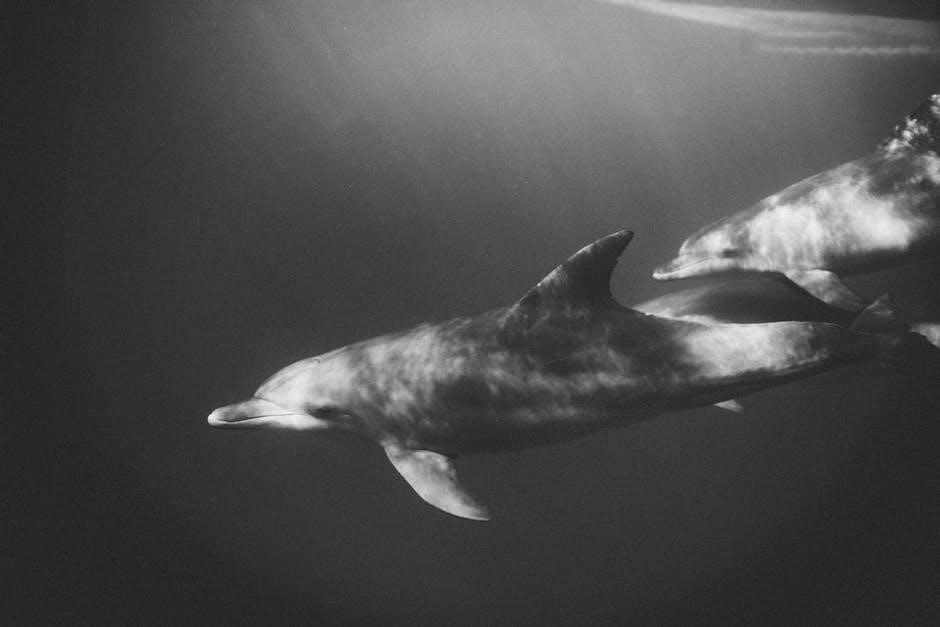
Scientific Evidence and Decision-Making Processes
ICCAT relies on scientific research and data to inform its decision-making‚ ensuring conservation measures are based on robust evidence and up-to-date marine ecosystem understanding.
3.1 Role of Regular Meetings and Scientific Research
ICCAT’s regular meetings serve as a platform for member states to discuss and implement scientifically grounded conservation strategies. These meetings are supported by comprehensive research on tuna and dolphin populations‚ ensuring decisions are evidence-based. By integrating findings from marine biology and ecology‚ ICCAT fosters sustainable tuna management and protects marine biodiversity. Scientific research also helps identify emerging threats‚ such as climate change‚ enabling proactive measures to mitigate their impacts on marine ecosystems.
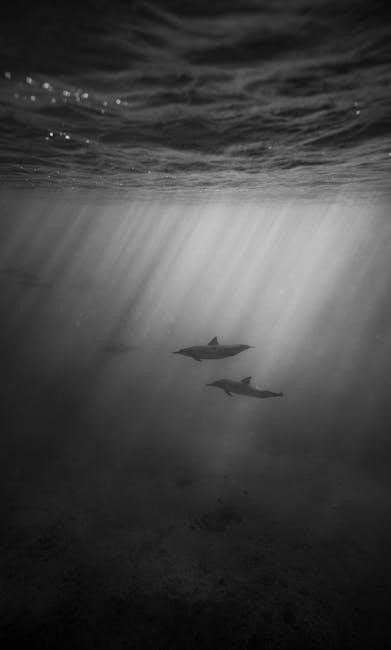
3.2 Integration of Climate Change Considerations
ICCAT recognizes the profound impact of climate change on marine ecosystems‚ particularly on tuna and dolphin populations. Rising ocean temperatures and acidification alter fish distribution and abundance‚ challenging conservation efforts. To address this‚ ICCAT incorporates climate change assessments into its decision-making processes‚ ensuring that management strategies adapt to these environmental shifts. By aligning with global initiatives like the Paris Agreement‚ ICCAT aims to mitigate the effects of climate change on marine biodiversity‚ safeguarding tuna stocks and dolphin populations for future generations while maintaining sustainable fishing practices.
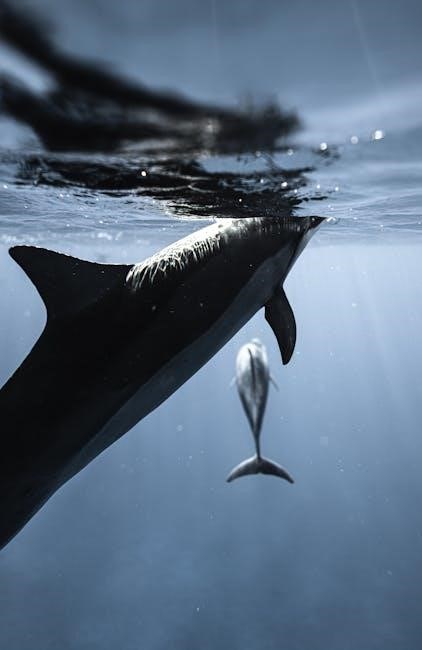
Combating Illegal‚ Unregulated‚ and Unreported (IUU) Fishing
ICCAT addresses IUU fishing through Resolution 99-11‚ enhancing monitoring and enforcement to ensure compliance with conservation measures‚ safeguarding tuna and dolphin populations from illegal exploitation.
4.1 ICCAT Resolution 99-11 and Its Implications
ICCAT Resolution 99-11 targets illegal‚ unregulated‚ and unreported fishing‚ focusing on large-scale longline vessels in the Atlantic. It mandates stricter monitoring and enforcement measures to prevent IUU activities‚ ensuring compliance with tuna conservation standards. This resolution emphasizes the importance of cooperation among member states to combat IUU fishing‚ which threatens tuna stocks and marine biodiversity. By implementing these measures‚ ICCAT aims to promote sustainable fishing practices and protect vulnerable species‚ including dolphins‚ from the impacts of illegal fishing operations. The resolution underscores the need for collective action to maintain healthy marine ecosystems and ensure the long-term sustainability of fisheries.
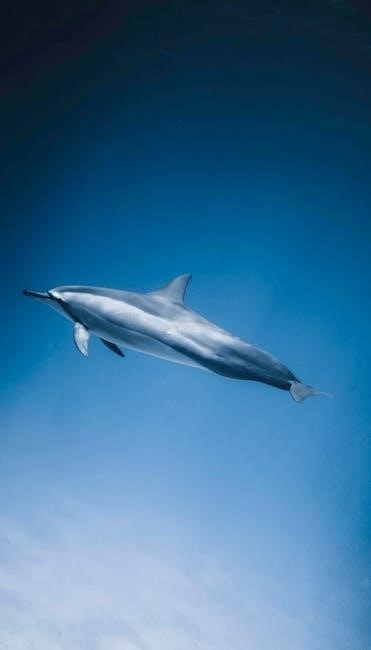
Biodiversity Conservation Instruments and Their Implementation
ICCAT implements biodiversity conservation instruments to protect marine ecosystems‚ ensuring sustainable fishing practices through comprehensive guidelines and detailed annual reports and compliance.
5.1 Guidelines for Annual Reports and Compliance
ICCAT’s guidelines for annual reports ensure compliance with dolphin-safe policies and revised fishing practices. These guidelines integrate scientific research to address climate change effects on marine biodiversity. Annual reports must detail fishing activities‚ conservation measures‚ and compliance with resolutions‚ ensuring transparency and accountability. The guidelines also emphasize the importance of biodiversity conservation instruments in maintaining sustainable marine ecosystems. By adhering to these guidelines‚ ICCAT promotes effective implementation of conservation measures‚ fostering collaboration among member states to protect marine life and ensure the long-term sustainability of tuna and associated species. This process is crucial for maintaining ecological balance and addressing illegal fishing practices effectively.
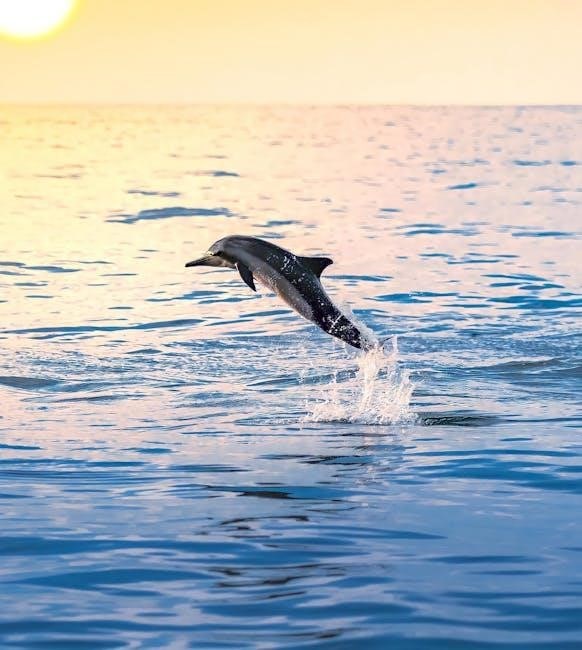
Dolphin-Safe Policy and Its Enforcement
The Dolphin-Safe Policy enforces strict monitoring‚ inspections‚ and certification processes to ensure tuna fishing practices minimize dolphin bycatch‚ promoting sustainable and ethical marine resource management.
6.1 Revised Guidelines for Fishing Practices
The revised guidelines under the Dolphin-Safe Policy outline specific fishing practices to minimize dolphin bycatch‚ including mandatory observer programs and strict gear modifications. Vessels must adhere to certification processes‚ ensuring compliance with ethical standards. Training programs for crew members are emphasized to promote awareness and proper handling techniques. Additionally‚ the guidelines mandate regular inspections and reporting mechanisms to monitor adherence. These measures aim to balance tuna fisheries with dolphin conservation‚ ensuring sustainable practices. Enforcement is strengthened through penalties for non-compliance‚ fostering a culture of accountability within the fishing industry. These revisions reflect ICCAT’s commitment to harmonizing fisheries management with marine biodiversity protection.
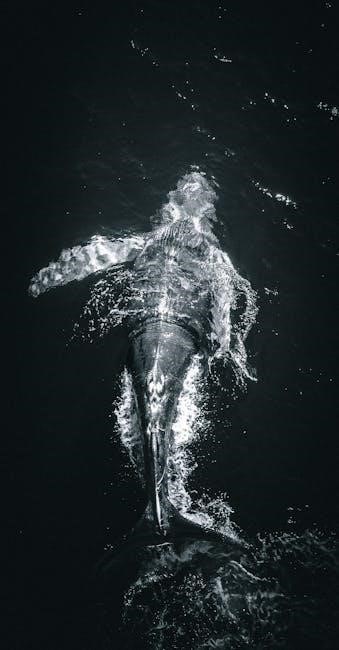
The Importance of the ICCAT Resolution on Dolphin Conservation
The ICCAT resolution ensures sustainable tuna fisheries management while protecting dolphins‚ balancing marine biodiversity conservation with ethical fishing practices‚ and promoting long-term ecosystem health globally.
7.1 Impact on Sustainable Marine Resource Management
The ICCAT resolution significantly contributes to sustainable marine resource management by ensuring responsible tuna fishing practices and protecting dolphin populations. By implementing strict conservation measures‚ ICCAT balances the needs of fisheries with environmental protection‚ fostering long-term ecosystem health. The resolution promotes the use of vessel monitoring systems and eco-labeling to maintain transparency and accountability in fishing operations. These efforts not only safeguard marine biodiversity but also support the socio-economic sustainability of fishing industries. The integration of scientific research and regular assessments ensures that management strategies adapt to evolving environmental challenges‚ making ICCAT a cornerstone of global marine conservation initiatives.
